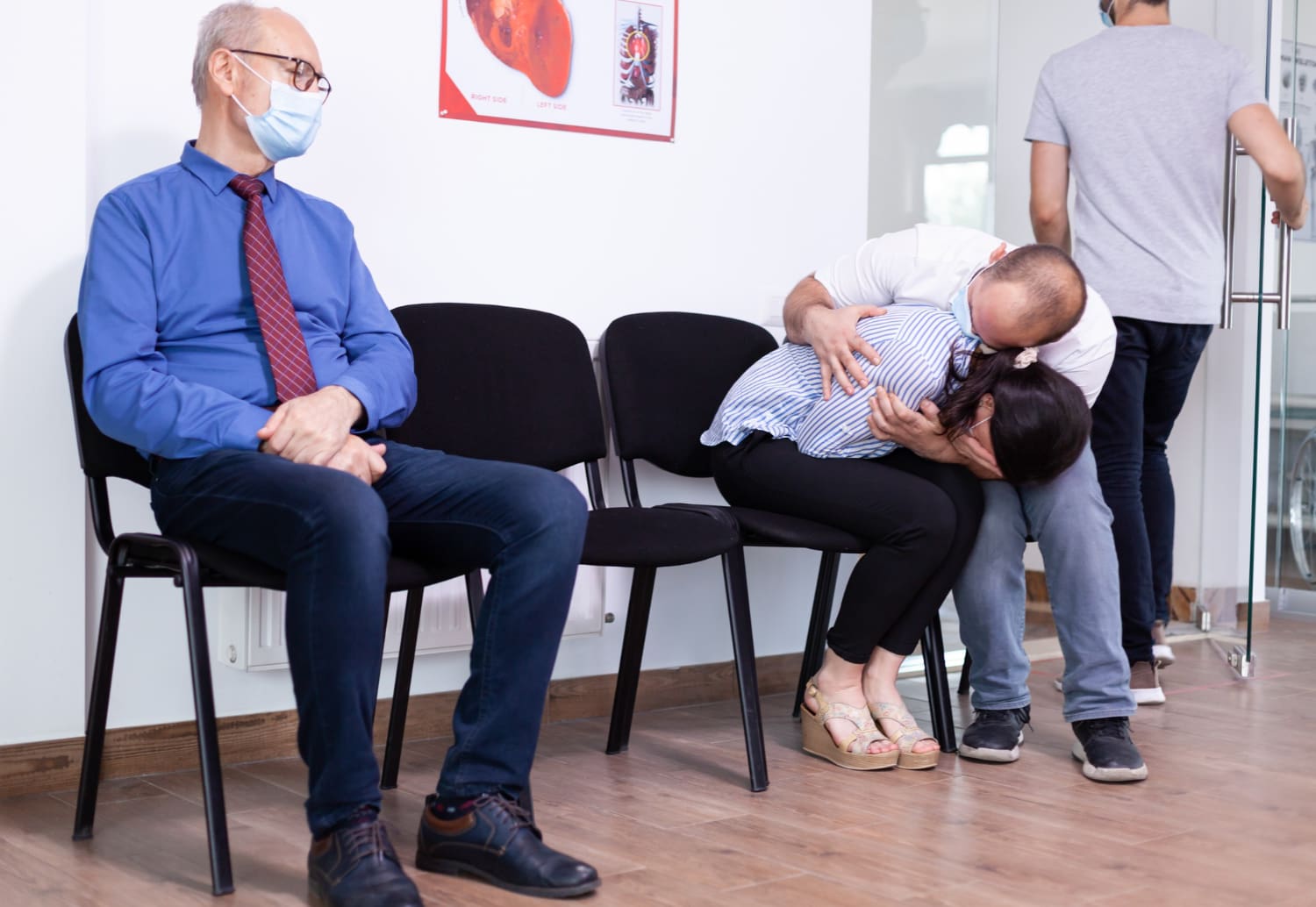
Coping with Post-Traumatic Stress Disorder (PTSD) can be daunting, but finding appropriate treatment in your area can provide essential support. As awareness of mental health issues grows, communities are now offering specialised PTSD treatments tailored to various needs. Local resources ensure professional care while allowing you to remain in familiar surroundings with your support network.
Opting for treatment close to home enables you to access therapies and resources while staying connected to loved ones. Whether through specialised clinics, support groups, or one-on-one therapy, local options make the healing process more attainable. By exploring these resources, you can take a significant step toward managing PTSD and regaining control of your life.
Understanding PTSD
PTSD, or post-traumatic stress disorder, is a mental health issue that arises after someone has experienced or witnessed a traumatic event, such as an accident, violence, combat, or a natural disaster. The symptoms associated with PTSD can significantly impact daily life, relationships, and overall mental health.
Common Symptoms of PTSD
- Flashbacks and Nightmares: Experiencing intense memories or dreams that make one feel as if they are reliving the traumatic event.
- Avoidance Behaviours: Avoiding certain places, people, or situations that bring back painful memories.
- Hyperarousal: A state of being overly alert, easily irritated, or prone to being startled.
- Mood Changes: Ongoing feelings of guilt, shame, or hopelessness.
These symptoms may emerge within months of the traumatic experience or even years later. The National Institute of Mental Health reports that approximately 6% of adults in the U.S. will experience PTSD at some point in their lives, underscoring the importance of seeking timely help.
The Impact of PTSD
PTSD impacts individuals in various ways. According to the Department of Veterans Affairs, around 10-30% of veterans may develop PTSD as a result of combat experiences. Civilians are also significantly affected, with many experiencing PTSD due to violence, accidents, or natural disasters. Timely treatment is crucial to prevent symptoms from escalating and to help individuals regain a sense of normalcy.
The Importance of Seeking PTSD Treatment
Seeking professional help for PTSD can greatly enhance symptoms and overall quality of life. Getting help early leads to better results by tackling symptoms right away. Waiting too long for treatment can worsen mental health issues and affect relationships, work, and daily activities.
Benefits of Local PTSD Treatment
- Accessibility: Having care nearby makes it simpler to attend therapy sessions and establish a routine.
- Community Support: Staying connected to local support networks can boost recovery efforts.
- Family Involvement: Treatment close to home enables loved ones to actively participate in your healing process.
By opting for local resources, you receive personalized care that takes into account your specific needs and situation..
Types of PTSD Treatments
Treatment for PTSD includes a variety of therapies and approaches. Finding the right combination can significantly improve recovery outcomes.
- Cognitive Behavioural Therapy (CBT)
CBT is recognized as one of the most effective approaches for treating PTSD. It emphasises the identification and alteration of negative thought patterns that lead to distress. In structured sessions, you will acquire coping strategies to manage triggers, alleviate anxiety, and regain control over your emotions.
- Eye Movement Desensitisation and Reprocessing (EMDR)
EMDR employs guided eye movements to assist in processing traumatic memories. By concentrating on specific thoughts while engaging in bilateral stimulation, EMDR diminishes the emotional intensity of trauma, making it easier to cope.
- Prolonged Exposure Therapy
This therapy encourages confronting trauma-related thoughts and situations in a controlled and supportive setting. Gradually facing fears helps reduce avoidance behaviours and allows you to reclaim activities and places you may have previously avoided.
- Dialectical Behaviour Therapy (DBT)
DBT is centred on regulating emotions and enhancing distress tolerance. It is particularly effective for managing intense feelings and improving interpersonal relationships, which can be affected by PTSD.
- Trauma-Focused CBT
This specialised version of CBT combines trauma processing with skill-building for emotional resilience. It aims to help individuals process trauma in a safe and constructive manner.
- Mindfulness-Based Stress Reduction (MBSR)
MBSR incorporates meditation and mindfulness techniques to enhance emotional regulation. This method assists individuals in staying grounded, thereby reducing anxiety and hyperarousal symptoms.
- Stress Inoculation Training (SIT)
SIT provides you with coping strategies to manage anxiety and lessen the impact of traumatic memories. These skills foster emotional resilience and empower you to handle stress effectively.
Finding PTSD Treatment Near Me
Local options for PTSD treatment offer accessible and effective care tailored to your specific needs. Here’s how to find the right support:
- Online Resources and Directories
Websites such as Psychology Today and the National Center for PTSD provide directories that allow you to..
- Community Mental Health Clinics
Local clinics often serve as the initial point of contact for those seeking treatment for PTSD. They offer therapy, medication management, and tailored care plans. Many also conduct workshops and seminars focused on PTSD to promote awareness and combat stigma.
- Support Groups and Peer Networks
Organisations such as NAMI and local PTSD support groups provide environments where individuals can connect with others who share similar experiences. Exchanging coping strategies and discussing challenges with peers can help alleviate feelings of isolation and create a sense of community.
What to Look for in a Treatment Provider
Selecting the right provider is essential for effective recovery. Here are some factors to consider:
- Qualifications and Experience
Make sure the provider is licensed and has specialized knowledge in treating PTSD. Look for professionals who are trained in evidence-based therapies like CBT or EMDR.
- Treatment Approaches
Opt for a provider who offers a variety of treatment options, ranging from traditional therapies to holistic approaches such as mindfulness or stress reduction techniques.
- Accessibility
Take into account the location, office hours, and availability of telehealth services. A provider that is easy to access helps ensure regular therapy sessions, which are vital for long-term recovery.
Success Stories of Local PTSD Treatment
Many individuals report notable improvements after participating in local PTSD treatment programs. Veterans often emphasize the effectiveness of EMDR in addressing combat-related trauma, while others commend CBT for its role in altering thought patterns and managing anxiety. Support groups are frequently described as transformative, providing connection and shared insights.
Local treatment providers receive commendations for their personalized care and consistent follow-ups, which play a significant role in fostering resilience and enhancing quality of life.
Take the First Step with BridgePath Place
At BridgePath Place, we offer customized PTSD treatments in a calm and supportive setting. Our skilled team provides therapies such as CBT, EMDR, and mindfulness techniques to assist you on your path to healing. Begin your recovery today with individualized care and empathetic support.
Reach out to us to book your consultation and take the first step toward regaining control of your life.
Frequently Asked Questions About PTSD Treatment
What is PTSD, and how is it triggered?
PTSD, or Post-Traumatic Stress Disorder, is a mental health condition caused by experiencing or witnessing traumatic events like accidents, combat, or assaults. It triggers symptoms such as flashbacks, avoidance behaviors, and heightened emotional responses, disrupting daily life.
What are the benefits of local PTSD treatment?
Local PTSD treatment ensures timely access to care while allowing you to stay connected to family and community support networks. Nearby facilities provide convenience, personalized care, and the ability to involve loved ones in your recovery.
Which therapies are effective for PTSD?
Therapies like Cognitive Behavioural Therapy (CBT), Eye Movement Desensitisation and Reprocessing (EMDR), and Prolonged Exposure Therapy are highly effective. These approaches help process trauma, reduce anxiety, and build coping skills.
How do I find PTSD treatment near me?
You can search online directories like Psychology Today or visit community mental health clinics. Support groups and peer networks, such as those offered by NAMI, provide additional resources and communal support.
Can PTSD be treated with medication?
Yes, medications like SSRIs (e.g., sertraline, paroxetine) and SNRIs (e.g., venlafaxine) can alleviate symptoms such as anxiety and depression. These are often combined with therapy for a comprehensive treatment plan.
